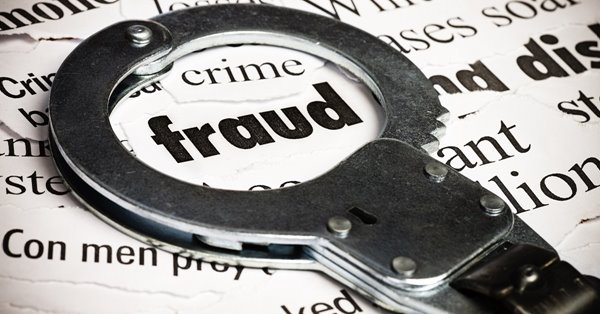By James Tarlton, Underwriting Counsel , AmTrust Title Insurance Company
As a real estate professional, you always have to be on alert for potentially fraudulent activity. One of the more dangerous schemes is fraudulent sellers who pose as property owners, defrauding buyers and others involved in the transaction. Although it may be tough to spot a scammer, there are signs to be aware of that should prompt further investigation.
1. The Property Is Owner-Unoccupied or Vacant
If a property is vacant, this is not necessarily an issue. It’s likely the owner already moved to a new location. However, it’s possible that the “seller” saw or learned of a vacant home or one occupied by a tenant and decided to seize the opportunity to commit fraud with the house.
2. The Purported Seller Is Unable to Attend the Closing in Person
If the seller says they can’t attend the closing because they are on vacation, work overseas, or have a family emergency, that may be true. Or they might be trying to avoid showing up in person for fear of being exposed as not being the real owner of the home. Excuses like these are suspicious and could be a sign that the purported seller is trying to prevent exposure as a fraud.
3. All Communication Is Electronic
Refusing to talk by phone could mean the “seller” is a fraud. If someone is trying to pull off a scam, communicating solely via email gives them time to formulate responses and do research before getting back to you. Instead, buyers should strive to speak in person or, at least, by phone to better assess whether or not the seller can readily and effortlessly answer simple questions about themselves or the property.

4. The Seller Is Overly Agreeable to Making Concessions
Before closing, the buyer might mention repairs the house needs and ask the seller to reduce the price of the home or pay for the issue. If they agree to the requests too quickly, you might be dealing with a fraudulent seller. Legitimate sellers need time to think through requests that affect their proceeds.
5. The Seller “Happens to Know” a Local Notary
Documents related to a real estate transaction should be signed in the presence of professionals, such as an attorney, a realtor, or a title agent. If the seller offers to send you signed documents and they tell you they have a good friend who’s a notary and can notarize the signatures, be wary. The sale might not be legitimate.
6. Property Is Unencumbered by Voluntary Liens, Such as a Deed of Trust
If there’s no mortgage on the property, it could be that the seller paid off their mortgage. However, it should prompt further investigation because when a mortgage restricts the property, the closing agent coordinates between the seller and mortgagor, often requiring personal information that a fraud wouldn’t have access to. If there’s no mortgage, it’s easier for a “seller” to forge the real seller’s signature, sign the property over to themselves, and then offer it for sale.
7. The Seller Tries to Rush the Pace
A real estate transaction takes time. Sellers often rush to receive their funds, but if a seller tries to move things along too quickly, that may cause concern. They might be an imposter who wants to complete the transaction before the others involved in the sale discover them. Ask them why they are in such a rush, and listen for contradictions or unrealistic claims. Have another professional involved in the transaction bring up the topic with the seller as well and compare notes. If there’s any information that’s verifiable, see if it checks out. There might be a simple answer, like they’re buying a different property and need the sale proceeds of their sale to cover their purchase, but proceed with caution.
8. The Price Is Below Market Value, or the Price Recently Dropped Significantly
Legitimate sellers want to get the most out of their sales. If the price is too good to be true, it might mean that a fraudulent seller is trying to create a sense of urgency. A buyer who sees a below-market price might be inclined to proceed with the deal without asking too many questions. As one of the professionals involved in the transaction, you should be on alert for some of the other signs of fraud when the price seems too low.
Take Steps to Prevent Fraudulent Sellers Who Might Be Impersonating a Seller
There are measures you can take as a real estate professional to help prevent this type of fraud:
- Always be on the lookout for discrepancies.
- When you see something suspicious or feel something might be off, continue to do your due diligence.
- Ask the seller as many questions as necessary to determine if something is amiss.
- Verify the information the seller tells you when possible.
- Insist that you or one of the professionals involved meet the seller at some point in the transaction unless actual circumstances don’t allow it.
By being alert and taking action when necessary, you can make it hard for bad actors to commit fraud in transactions you’re involved in.